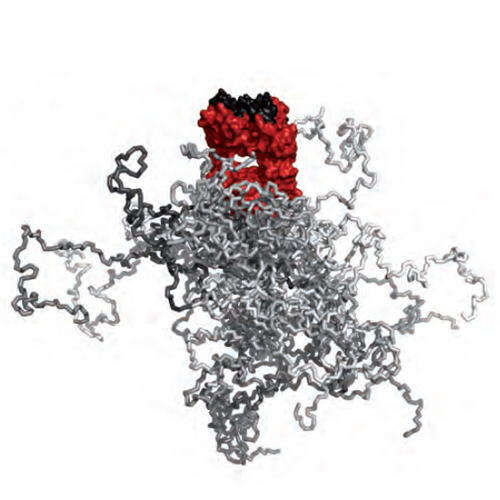PASylation: a biological alternative to PEGylation for extending the plasma half-life of pharmaceutically active proteins
10-Jun-2013
Protein Engineering, Design and Selection, 2013, doi: 10.1093/protein/gzt023, 26 (8): 489-501 published on 10.06.2013
A major limitation of biopharmaceutical proteins is their fast clearance from circulation via kidney filtration, which strongly hampers efficacy both in animal studies and in human therapy. We have developed conformationally disordered polypeptide chains with expanded hydrodynamic volume comprising the small residues Pro, Ala and Ser (PAS). PAS sequences are hydrophilic, uncharged biological polymers with biophysical properties very similar to poly-ethylene glycol (PEG), whose chemical conjugation to drugs is an established method for plasma half-life extension. In contrast, PAS polypeptides offer fusion to a therapeutic protein on the genetic level, permitting Escherichia coli production of fully active proteins and obviating in vitro coupling or modification steps. Furthermore, they are biodegradable, thus avoiding organ accumulation, while showing stability in serum and lacking toxicity or immunogenicity in mice. We demonstrate that PASylation bestows typical biologics, such as interferon, growth hormone or Fab fragments, with considerably prolonged circulation and boosts bioactivity in vivo.











